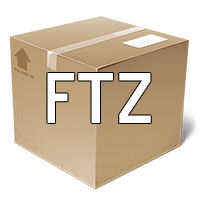Foreign-Trade Zones (FTZ) are secure areas under U.S. Customs and Border Protection (CBP) supervision that are generally considered outside CBP territory upon activation. Located in or near CBP ports of entry, they are the United States’ version of what are known internationally as free-trade zones.
under U.S. Customs and Border Protection (CBP) supervision that are generally considered outside CBP territory upon activation. Located in or near CBP ports of entry, they are the United States’ version of what are known internationally as free-trade zones.
Domestic goods moved into the zone for export may be considered exported upon admission to the zone for purposes of excise tax rebates and drawback. A typical general-purpose zone provides leasable storage/distribution space to users in general warehouse-type buildings with access to various modes of transportation.
Subzones are normally private plant sites authorized by the Board and sponsored by a grantee for operations that usually cannot be accommodated within an existing general-purpose zone.
The Advantages of Using a Foreign-Trade Zone
- CBP duty and federal excise tax, if applicable, are paid when the merchandise is transferred from the zone for consumption.
- While in the zone, merchandise is not subject to U.S. duty or excise tax. Certain tangible personal property is generally exempt from state and local ad valorem taxes.
- Goods may be exported from the zone free of duty and excise tax.
- CBP security requirements provide protection against theft.
- Merchandise may remain in a zone indefinitely, whether or not subject to duty.
Establishing a Foreign-Trade Zone
The Foreign-Trade Zones Act of 1934 created a Foreign-Trade Zones Board to review and approve applications to establish, operate, and maintain foreign-trade zones. The Board may approve any zone or subzone which it deems necessary to serve adequately “the public interest”.
It is the intent of the U.S. foreign-trade zone program to stimulate economic growth and development in the United States. In an expanding global marketplace, there is increased competition among nations for jobs, industry, and capital. The FTZ program was designed to promote American competitiveness by encouraging companies to maintain and expand their operations in the United States.